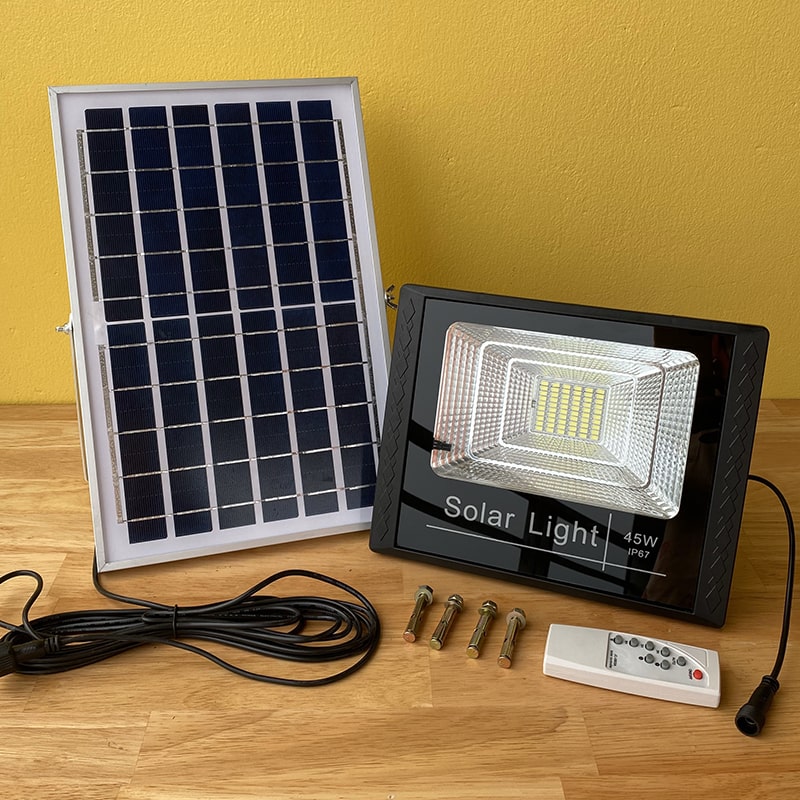Many homeowners have concerns about the cost and lifespan of Harbor Freight solar panels. If you're considering investing in them, it's important to understand these factors. In this article, we will explore everything you need to know about Harbor Freight solar panels and how long you can expect them to last.
Read more: Guidelines for Selecting the Optimal LED Strip Lights
What Are Solar Panels?
Solar panels are devices that convert sunlight into usable electrical energy. They are made up of photovoltaic cells, typically made of silicon or thin-film semiconductor materials. These cells are arranged in series and parallel circuits to create different voltages. A voltage regulator then converts the multiple voltages into a continuous DC (direct current) output.
The basic components of a solar cell include the photocathode, photoemissive layer, electron transport layer, contact layer, and metal electrode. Multiple solar cells are connected together in series and/or parallel circuits to create a solar panel.
Read more: Why Opt for LED Lighting for Your TV Setup
Types of Solar Panels
There are three main types of solar panels: amorphous, crystalline, and hybrid.
What Are Amorphous Panels?
Amorphous solar panels, also known as amorphous silicon (a-Si) cells, are popular among homeowners on a budget. They are less expensive than crystalline silicon panels but produce less power per square foot. Care should be taken when installing them in hot areas as they may not generate enough heat to offset electricity loss.
What Are Crystalline Silicon Cells?
Crystalline silicon cells are the most common type of solar cell used in residential solar systems. They are highly efficient and convert sunlight into electrical energy at a high rate. Crystalline silicon panels are known for their durability, reliability, and resistance to damage from weather conditions. However, they tend to be more expensive than amorphous silicon panels.
Read more: Efficient Energy Use and Prolonged Lifespan
What Are Hybrid Solar Panels?
Hybrid solar panels combine crystalline silicon and amorphous silicon cells in one panel. They provide a balance between efficiency and longevity, making them a great choice for larger projects.
Why Choose Harbor Freight Solar Panels?
Harbor Freight solar panels are made from high-quality materials and designed to be durable, reliable, and easy to install. They come with everything you need to get started right away, including mounting hardware, installation instructions, and a free power inverter. Additionally, they are affordable, making them a popular choice for residential solar installations.
Types of Harbor Freight Solar Panels
Harbor Freight offers a variety of solar panel options suitable for different applications. These include standard solar panels, ground mount solar panels, rooftop solar panels, flat plate solar panels, and hybrid solar panels.
How Do Solar Panels Work?
Solar panels generate electricity through a process called photovoltaics. Photovoltaic cells convert light directly into electrical energy. When exposed to sunlight, electrons move from the valence band of one layer to the conduction band of the other layer, creating an electric field and a flow of electrons.
How Does a Harbor Freight Solar Panel System Work?
When connected to the grid, a Harbor Freight solar panel system converts DC electricity into AC electricity. The power meter measures your electricity usage, and the utility provider calculates the percentage of electricity provided by your solar panels. Installing a solar panel system reduces reliance on fossil fuels, lowers monthly electricity costs, and helps the environment.
Advantages of Harbor Freight Solar Panels
Harbor Freight solar panels offer several advantages:
- Low initial cost
- No maintenance requirements
- Energy independence
- Environmentally friendly
- Easy installation
- Reliability
Downsides of Solar Panels
There are a few downsides to consider when using solar panels:
- Reliance on sunlight availability
- Limited effectiveness in areas with low sunlight
- Lack of energy storage (requires an inverter for nighttime use)
However, the benefits of solar energy outweigh these drawbacks, as it is cost-effective and environmentally friendly.
Why Install Harbor Freight Solar Panels?
Installing Harbor Freight solar panels is a cost-effective choice for your home or business. They are affordable, reliable, and produced by a trusted company with a lifetime warranty. Furthermore, the savings on electricity bills and the positive impact on the environment make them a worthwhile investment.
Solar Energy Costs and Lifespan
The cost of installing Harbor Freight solar panels varies depending on location and roofing material. On average, a single solar panel system costs between $2,500 and $4,000. The panels themselves cost around $0.13 cents per kWh, resulting in an average annual cost of around $2.50. The lifespan of Harbor Freight solar panels can range anywhere from 10 to 20 years, depending on the quality of the materials used.

Is It Worth Buying a Used Harbor Freight Solar Panel System?
While purchasing a used solar panel system may save money initially, there are drawbacks to consider. The condition of the panels and the lack of warranty and tax credits make buying used panels less favorable compared to new ones.
In conclusion, investing in quality Harbor Freight solar panels helps save money, store energy, and contribute to a healthier planet. Researching and understanding the options available ensures a wise investment in solar panel kits that will stand the test of time.















